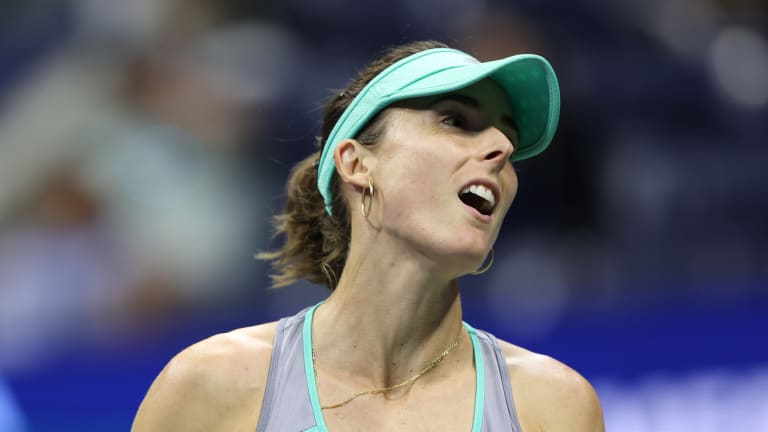2022 Year In Review
Top 5 Best Quotes of 2022, No. 3: Alizé Cornet exposes “a tacit agreement” in Paris
By Dec 07, 20222022 Year In Review
The Baseline Awards: Tearjerker Moment
By Dec 22, 20222022 Year In Review
The Baseline Awards: Biggest Question Mark
By Dec 21, 20222022 Year In Review
The Baseline Awards: Patriotic Performance
By Dec 20, 20222022 Year In Review
The 2022 Baseline Awards: Dual Threats
By Dec 19, 20222022 Year In Review
Top Fashion Moments of 2022: When Serena Williams twirled away in a diamond-encrusted dress
By Dec 17, 20222022 Year In Review
Top Fashion Moments of 2022: When Jelena Ostapenko made you lewk
By Dec 15, 20222022 Year In Review
Top Fashion Moments of 2022: Is Casper Ruud the style heir to Roger Federer?
By Dec 14, 20222022 Year In Review
Top Fashion Moments of 2022: When Coco Gauff broke the mold and unveiled her signature shoe
By Dec 14, 20222022 Year In Review
Top Fashion Moments of 2022: When Frances Tiafoe rocked Naomi Osaka's sneakers at the US Open
By Dec 12, 2022Top 5 Best Quotes of 2022, No. 3: Alizé Cornet exposes “a tacit agreement” in Paris
The Frenchwoman made headlines by revealing that some players at Roland Garros quietly agreed to stop self-testing for COVID-19.
Published Dec 07, 2022
Advertising

Alize Cornet lifted the lid on a conspiracy of silence at Roland Garros.
© Getty Images